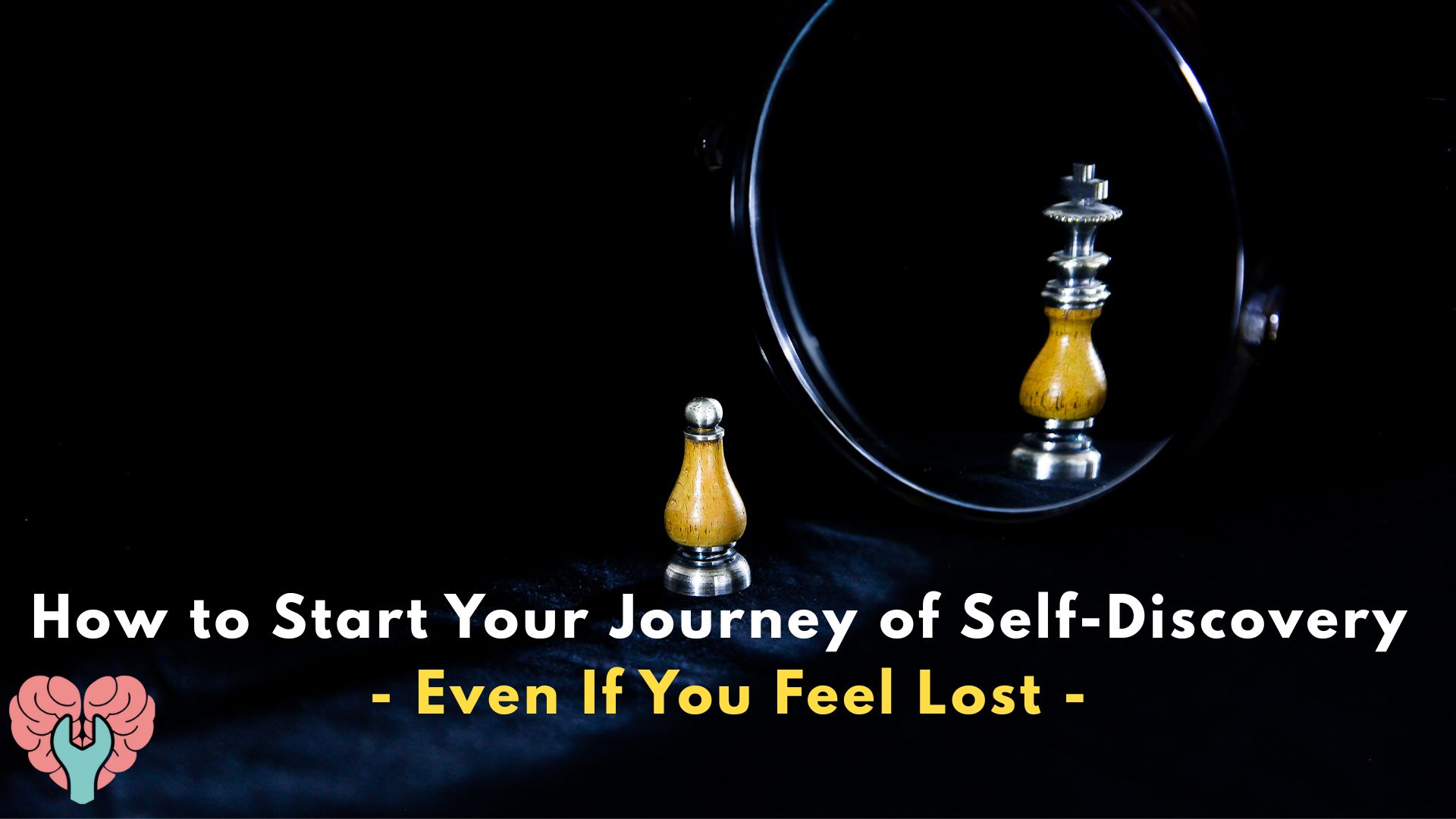How to Start Your Journey of Self-Discovery (Even If You Feel Lost)
How to Start Your Journey of Self-Discovery (Even If You Feel Lost)

Written by Jenefa Anthony KB 11780
Feeling lost isn’t a failure. It’s a signal. It’s your mind waving a flag, saying: Pay attention. Something important is missing or buried. Furthermore, this feeling can strike at any age or stage in life, whether you’re stuck in a job that doesn’t fit, trapped in a routine that feels meaningless, or simply unsure of who you are beyond your obligations.
But here’s the good news: feeling lost is often the first step toward finding yourself.
The journey of self-discovery isn’t about becoming someone new. It’s about peeling back the layers of who you’ve been told to be, so you can finally hear your own voice underneath all the noise. And it doesn’t require a dramatic life overhaul. You can start exactly where you are.
Let’s talk about how.
Reminder: If you or your loved ones are struggling with mental health issues, please don't hesitate to reach out to us at Soul Mechanics KD or Soul Mechanics Ipoh. Remember, seeking help is not a sign of weakness but strength!
Why Self-Discovery Matters
When you don’t know who you are, your life starts to feel like it belongs to someone else. You may go through the motions, checking off boxes, but there’s no real connection to your choices. Over time, this disconnect can show up as anxiety, depression, or burnout (Ryan & Deci, 2000).
In addition, self-discovery helps restore that connection. It gives you direction, agency, and clarity. Research on self-concept clarity - knowing who you are and what you stand for, shows it’s linked to greater psychological well-being, emotional stability, and resilience (Campbell et al., 1996).
This isn’t just about self-improvement. It’s also about self-understanding, which is the foundation of a meaningful life.
Start With Stillness
Before you figure out who you are, you have to stop running from the question.
Many of us may also fill every spare second with some noise like scrolling, working, or binge-watching because silence can be uncomfortable. But in that silence, your real thoughts start to surface. That’s where the process begins.
Try sitting quietly for ten minutes a day. No phone. No tasks. Just you and your thoughts. This isn’t meditation (though that helps too). It’s listening. Pay attention to what bubbles up; it may be some desires, fears, regrets, or ideas.
This simple practice also boosts self-awareness, which researchers define as the ability to see yourself clearly and objectively (Eurich, 2017). It’s a skill that lays the groundwork for deeper insight.
Ask Better Questions
A lot of people get stuck asking What’s wrong with me? Or why can’t I just be happy?. However, sadly, these questions don’t open doors. They just tighten the loop of self-doubt.
Try shifting the questions. Here are a few that open space for real discovery:
· What do I genuinely enjoy, not just what I’m good at?
· When do I feel most like myself?
· What have I been taught to value that doesn’t actually matter to me?
· Whose approval am I still chasing?
Writing your answers down, even if they feel messy, also creates clarity over time. Journaling has been shown to reduce rumination and increase meaning-making (Pennebaker & Chung, 2011). Don’t worry about grammar or logic. Just write what’s true in the moment.
Reminder: If you or your loved ones are struggling with mental health issues, please don't hesitate to reach out to us at Soul Mechanics KD or Soul Mechanics Ipoh. Remember, seeking help is not a sign of weakness but strength!
Reconnect With Your Core Values
Values are the things that matter most to you, not what society, family, or culture say you should care about, but what feels meaningful on a gut level. Moreover, living out of alignment with your values leads to confusion and dissatisfaction. Living in alignment? That brings direction and energy.
To uncover your values, reflect on:
· Times when you felt proud or fulfilled. What values were you expressing?
· Moments that upset or angered you. What values were being violated?
· People you admire. What qualities in them speak to your own aspirations?
Psychologist Steven Hayes, the founder of Acceptance and Commitment Therapy (ACT), also emphasizes values as compass points that don’t dictate your exact path, but they give you a direction (Hayes, Strosahl & Wilson, 2012).
Accept Your Past Without Letting It Define You
We all carry stories about ourselves where we failed, where we didn’t measure up, where we hurt or were hurt. However, these stories can become identities: I’m not the type to take risks. I always mess things up. I’m too sensitive.
But your past doesn’t get the final say. It’s just part of the picture.
Furthermore, cognitive-behavioural research shows that identifying and challenging or limiting beliefs can lead to healthier behaviours and emotional growth (Beck, 2011). Ask yourself:
· Is this belief about me always true?
· Where did I learn it?
· Who might I be if I let it go?
You can acknowledge what’s shaped you without being trapped by it. Whereas, growth doesn’t mean erasing the past. It means building forward with awareness.
Try New Things (Even Small Ones)
You don’t find yourself by thinking alone. Action creates clarity.
Try things that push you slightly out of your comfort zone, like a new class, a creative project, a solo trip, volunteering, anything that stretches your edges. These experiences can also generate feedback. Furthermore, they show you what lights you up, what scares you (and why), what you’re good at, and what you want more of.
Exploration builds what psychologists call “possible selves”, the mental images of who you might become. These help guide future decisions and foster motivation (Markus & Nurius, 1986).
You don’t need to commit to a whole new lifestyle. Just follow your curiosity. See where it leads.
Let Go of Comparison
It’s hard to know who you are when you’re busy trying to be someone else.
Whereas, social media makes it worse. Everyone seems to have a perfect plan, aesthetic, career, partner, and purpose. But most of what you’re seeing is edited, the highlights, not the full picture. And even if it were real, their journey has nothing to do with yours.
Constant comparison damages self-esteem and increases anxiety, especially in younger adults (Vogel et al., 2014). Remember, you don’t need to keep up. You need to tune in.
Think about what you would still want to do if no one were around.
Be Patient With the Process
Self-discovery isn’t a weekend project. It’s not linear or neat. Some days you’ll feel inspired, others uncertain or discouraged. That is also normal. This is a lifelong relationship with yourself, and like any relationship, it takes time and care.
Moreover, there’s no “final version” of you to reach. People evolve. What matters is staying connected to yourself as you go – checking in, recalibrating, allowing your identity to shift as you learn more.
If You Need Help, That’s Part of the Journey Too
Sometimes, feeling lost doesn’t just come from a lack of direction. It can also be a symptom of deeper emotional wounds. If you’ve been through trauma, chronic stress, or depression, self-discovery can feel like trying to read a map with the lights off.
Therapy can also be a powerful tool in this process, not because it gives you answers, but because it gives you space to ask better questions with someone trained to guide you.
You don’t have to do this alone.
Reminder: If you or your loved ones are struggling with mental health issues, please don't hesitate to reach out to us at Soul Mechanics KD or Soul Mechanics Ipoh. Remember, seeking help is not a sign of weakness but strength!
Final Thoughts: You’re Not Broken - You’re Becoming
Feeling lost doesn’t mean you’ve failed. It means something inside you is waking up. You’re not behind. You’re exactly where you need to be to begin.
Self-discovery isn’t about finding a fixed identity. It’s about learning to listen to yourself, to trust what you hear, and to move in the direction of truth, even if you’re not sure where it leads yet.
In short, start with curiosity. Be honest. Start small. But START.
If you’re looking for a therapist in Kota Damansara or Ipoh area, you can click here for more information.
If you enjoyed reading this, why not broaden the horizon of knowledge by learning about "Feeling Lost: How I Found A Way Back"? You can read the blog here.
For more content related to mental health do follow us on our official Instagram.

